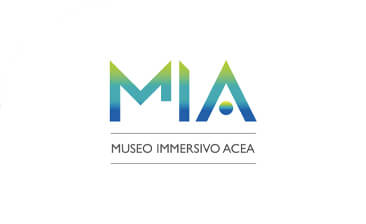Legislative Decree no. 231 dated 8 June 2001 introduced to the Italian legal system a regime of entities’ administrative liability resulting from certain crimes (so-called “underlying offences”) committed in the interest or to the advantage of the company by persons acting for the company in a representative, administrative or management capacity, as well as those exercising the management and control of the same (so-called top management) and lastly by people under the management or supervision of top management (so-called people subjected to the supervision of others).
Since 2004 Acea has adopted an Organisation, Management and Control Model pursuant to Legislative Decree no. 231/01 (“231 Organisation Model” or “Model”), designed to prevent the committing of theoretically feasible administrative crimes and offences within the scope of company business. The 231 Organisation Model is subject to constant revision and enhancement in the light of experience gained, developments in case law and theory, the legislative evolution of the Decree and company organisational changes. In 2023, Acea SpA carried out a complete revision of the Model, insofar as concerns the risk assessment methodology, in order to bring it into line with the additional methodologies utilised in the company (for example ERM, antitrust, anti-corruption), and re-elaborated the Special Part according to a “process-driven” approach, to render the document more usable and facilitate its application. Acea SpA’s new Model represents the reference framework for the Models adopted by the Group’s companies.
The Code of Ethics is an integral part of the 231 Organisational Model.
The Model is one of the essential elements of Acea's broader control system, to be understood as a set of all those tools necessary or useful to direct, manage and assess business activities, with the aim of ensuring compliance with laws and procedures, protecting company assets, managing activities in the most suitable and efficient way, and providing accurate and complete accounting and financial data.
The control system is integrated into the more general organisational and corporate governance structures adopted by Acea and contributes, with all its components, both directly and indirectly, to the prevention of the predicate offences under Legislative Decree. 231/01. For Acea, the control system is an essential element of the Group's Corporate Governance system, it is based on reference best practices and on the principles of the Self-Disciplinary Code of the listed companies. It is made up of an organic set of rules, policies, procedures and organisational structures aimed at allowing the identification, measurement, management and monitoring of the most common risks, with the aim of identifying potentially harmful events for the achievement of corporate goals and managing the risk within acceptable limits.
In sum, in adopting the 231 Organisation Model, and consistent with the express requirements laid down by the laws in force, Acea sets itself the following general objectives:
Addressees of the Model, include:
The Model, the Code of Ethics and the Anti-Corruption Guideline are essential references for all those who contribute to the development of the various activities — such as suppliers of materials, services and works, consultants, partners in temporary associations, or companies with which Acea operates.
All recipients of Model 231/01 must collaborate in the full implementation of the principles and provisions of the Model, in such a way as to direct everyone's behaviour and mitigate the risks associated with company activities and processes. The company sanctions any behaviour in violation (in addition to current legislation) of the provisions of Model 231/01, of the Code of Ethics, the Anti-Corruption Guideline, and in general of the principles of conduct defined by the company, even when the conduct is based on the belief that it pursues the company's interest or advantage.
In accordance with the provisions set forth in the Decree and the 231 Organisation Model, Acea has established a Supervisory Body, that guarantees the requisites of autonomy, independence and professionalism. The Supervisory Body has full, independent powers of initiative, intervention and control over the effective functioning and observance of the Model.
More specifically, the Supervisory Body:
The Supervisory Body, through dedicated channels, must be promptly informed regarding behaviours, acts or events which could lead to a violation or circumvention of the Model (or reference regulatory system), as well as of potentially relevant news relating to Acea's activities, in case these may expose the company to the risk of crimes and offences such as to give rise to Acea's liability pursuant to the Decree.
For further details on the reports and the related guarantees and safety measures implemented for the reporting person, the person involved or subject of the report, as well as for the additional "subjects" to whom the protection is extended (as provided for by Legislative Decree no. 24/2023), please refer to the page dedicated to Whistleblowing.
Please note: for issues which are not related to “231 Organisational Model reports”, it is also possible to contact the Supervisory Body writing at organismodivigilanza231@pec.aceaspa.it.
Acea supports the adoption and effective implementation by the Group Companies of their own 231 Organisational Model, consistent with the principles set out in the Parent Company's Model, as well as the appointment of their own Supervisory Body. The Group companies adopt their own Model under their own responsibility, after having identified the activities that pose a risk of committing crimes and the most suitable measures to prevent them, as well as the implementation and constant updating of the above-mentioned Model, consistently with their organisational system and size.
Acea Energia S.p.A. – odv.aceaenergia@aceaspa.it
Acea Innovation S.r.l. – odv.aceainnovation@aceaspa.it
Acea Ambiente S.r.l. – odv.acea.ambiente@aceaspa.it
Acque Industriali S.r.l. – odv.acqueindustriali@aceaspa.it
Aquaser S.r.l. – odv.aquaser@aceaspa.it
Berg S.p.A. – odv.berg@aceaspa.it
Cavallari S.r.l. – odv.cavallari@aceaspa.it
Deco S.p.A – odv@decogroup.it
Demap S.r.l. – odv.demap@aceaspa.it
Ferrocart S.r.l. – odv.ferrocart@aceaspa.it
Iseco S.p.A. – odv.iseco@aceaspa.it
Meg S.r.l – odv.meg@aceaspa.it
S.E.R. Plast S.r.l. – odv.serplast@aceaspa.it
Areti S.p.A. – odv.distribuzione@areti.it
Acea Ato 2 S.p.A. – odv.ato2@aceaspa.it
Acea Ato 5 S.p.A. – odv.aceaato5@aceaspa.it
Acea Molise S.r.l. – odv231aceamolise@aceaspa.it
Ge.Se.Sa. Gestione Servizi Sannio S.p.A. – odv.gesesa@aceaspa.it
Umbriadue Servizi Idrici S.c.a.r.l. – organismodivigilanza@umbriadue.it
Acea Infrastructure S.p.A. – odv.aceaelabori@aceaspa.it
Acea Produzione S.p.A. – odv.produzione@aceaspa.it
Acea Solar S.r.l. – odv.solar@aceaspa.it
Ecogena S.r.l. – odv.ecogena@aceaspa.it
Ombrone S.p.A. – odv231ombrone@aceaspa.it
Orvieto Ambiente S.r.l. - odv.orvieto.ambiente@acespa.it
Tecnoservizi S.r.l. - odv.tecnoservizi@aceaspa.it
Discover the latest news and initiatives of the Acea Group

Acea for World Energy Saving Day

Visit the virtual museum about the history of the Acea Group

The channel for the commercial requests on land urbanisation

Acea turns the spotlight on the Rome Film Festival 2023

Acea is in the "Gold class" in the .trust research

Read more about our culture of inclusiveness